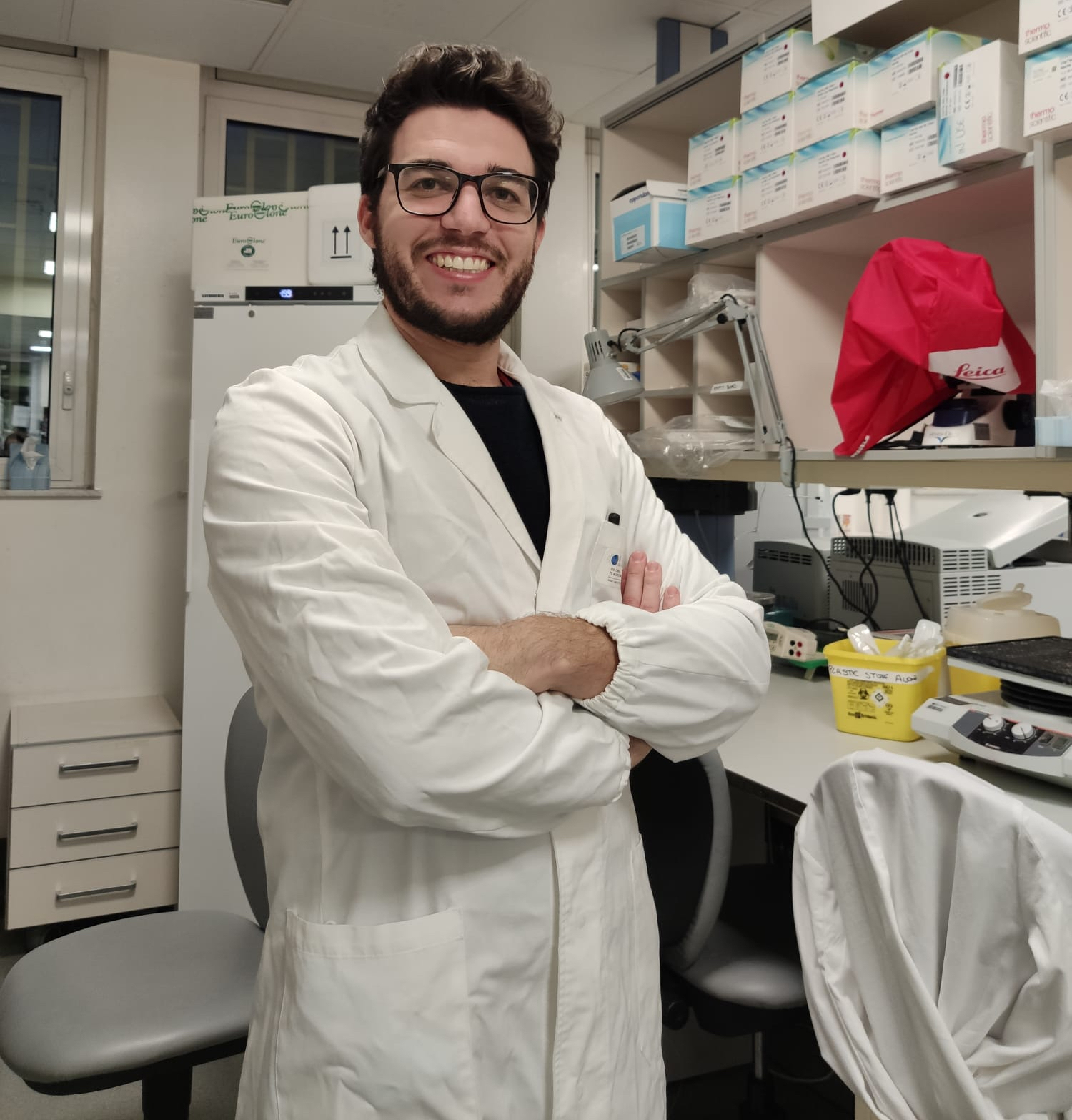
Simone Tamburri, post-doctoral fellow in Diego Pasini’s lab, has won a MyFirstAircGrant to investigate mechanisms of epigenetic regulation in cancer progression.
Epigenetics is the ensemble of DNA and DNA-associated protein modifications that regulate gene expression. Alterations in cellular epigenetic profile –due to mutations in genes of epigenetic regulators– is a common hallmark in cancer.
A main actor in shaping the cellular epigenetic profile is the Polycomb protein complex. Polycomb complex acts by adding a molecule of ubiquitin onto histone2A (protein involved in DNA packaging); PR-DUB protein complex, instead, removes ubiquitin. By adding and removing ubiquitin, these two protein complexes control the expression of specific genes. However, a deep understanding of how Polycomb and PR-DUB work is still missing.
Unraveling the mechanisms underlying the control of ubiquitin levels and the associated modulation of gene expression can offer novel potential molecular targets to interfere with in order to control epigenetic-related oncogenic process.
Thanks to AIRC funding, Simone will unveil the mechanisms linking Polycomb complex activity and ubiquitin deposition on histone proteins, both in cancers characterized by the mutation in the tumor suppressor BAP1 –namely the catalytic subunit of PR-DUB– and in cancers characterized by defects in the protein (namely the SS18-SSX oncogenic fusion protein) that reads ubiquitination on histone2A, such as the synovial sarcoma. In these two tumor types, indeed, ubiquitin levels on histone proteins are altered.
By identifying the mechanisms linking Polycomb activity with BAP1-mutated and SS18-SSX tumors, this project will identify new weaknesses of cancer cells to exploit to halt tumor progression, offering new potential therapeutic targets.
Congratulations Simone!